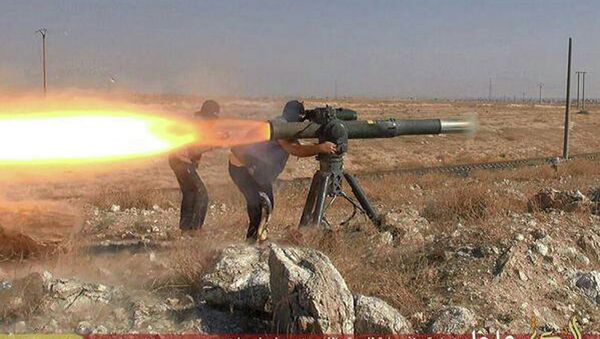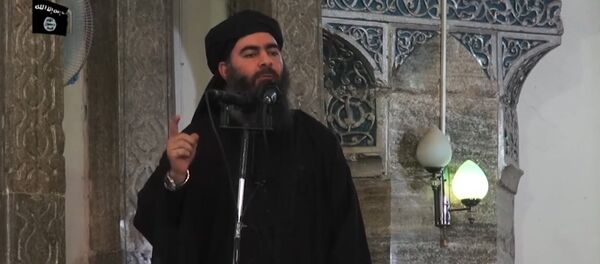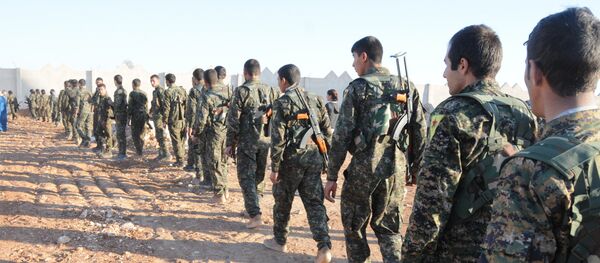This statement also echoes a claim from Iraqi Interior Ministry official Abu Ali Basri, who said that al-Baghdadi is hiding in Syria.
Earlier however, media outlets reported several times that the Daesh leader had been killed. The news comes amid the ongoing military operation aimed at liberating Raqqa from the terrorists. Raqqa is terrorists' last urban stronghold following the liberation of Iraqi city of Mosul by the US-backed Iraqi coalition forces.
Radio Sputnik spoke with Dr. David Cook, assistant professor of religious studies at Rice University and author of the book "Understanding Jihad."
“I think that al-Baghdadi is probably still alive. For one thing he is the linchpin for the Islamic State [Daesh]. He grounds it in its religious legitimacy and he keeps it from civil war. I think that any signs of his death would cause the state to collapse because there would be questions as to what direction should the state take,” Cook said.
He further spoke about the claims suggesting that after its defeat Daesh may become an insurgency, saying that it’s a “rhetorical” claim but it will definitely maintain an ability to carry out terrorist operations most probably in the west.
“Due to Kurdish presence, Daesh can’t move through Turkey, however it will retain the possibility of reactivating its sleeper cells in the west but I doubt it will turn into al-Qaeda on steroids,” the analyst said.
He further spoke about al-Qaeda and how it still has a strong presence in countries like Yemen, Afghanistan, and Pakistan and now in some places in Southeast Asia.
Looking at the future of Daesh, the analyst said that after the group’s leader is killed it is possible to see a military doctrinal split in the terrorist group. He further said that although this might not indicate an actual split it is usually seen in Salafi jihadi groups.
“There will be those who will say that we were defeated because we weren’t doctrinally pure and there will be those who will say that we were defeated because we were too doctrinally pure. That kind of differences will need to be resolved for the group to continue,” Cook said.
He further spoke about the future of Daesh and radical ideology spreading in western countries.
“Daesh has consistently attracted people that are converts who are first or even second generation Muslim immigrants. So it’s not surprising to see westerners in Raqqa,” he said.
Raqqa has remained under the control of Daesh since 2013, and is considered the de facto capital of the terrorist group. The operation to liberate the city was launched by the Kurdish-Arab Syrian Democratic Forces (SDF), supported by the US-led international coalition, in early June.
On July 4, the SDF forces breached the Old City wall in Raqqa, advancing into its most heavily fortified enclave and overcoming the defenses of the terrorists. A spokesman for Syria’s Tomorrow Movement, a national opposition party, told Sputnik that the city would hopefully be completely liberated within three months.




